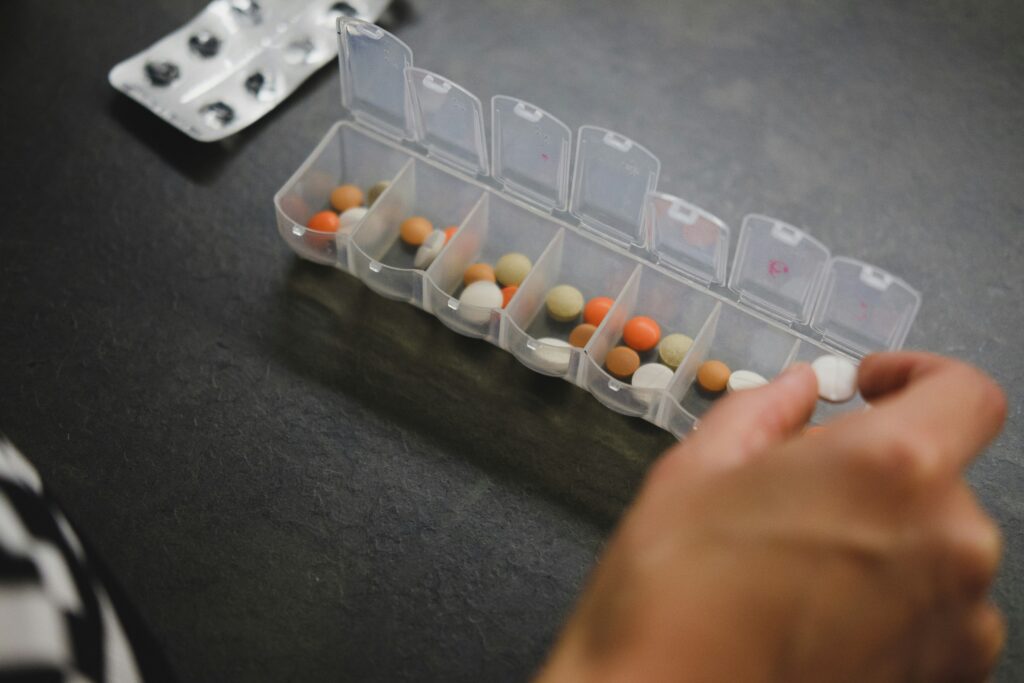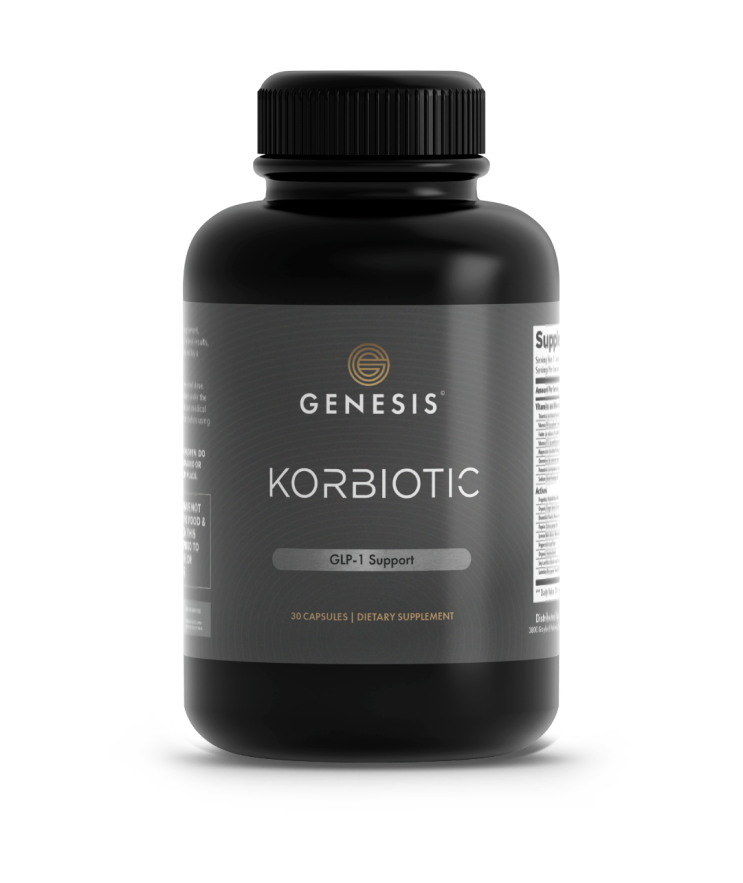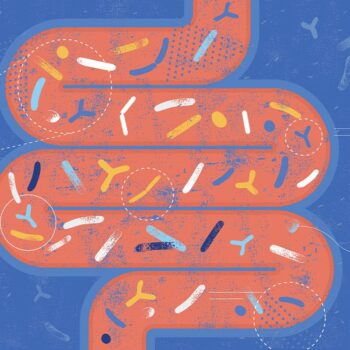Probiotics and GLP-1 for weight loss: You’ve probably tried countless conventional methods to lose weight such as subscribing to a calorie-deficit meal plan, going daily to the gym, and taking probiotics and GLP-1 for weight loss, certain medications & even herbal remedies, yet nothing seems to work.
This can be incredibly frustrating and disheartening, leading to a feeling of hopelessness in your weight loss journey. Majority of us have been there at some point in our lives so we definitely can relate and know the feeling.
However, it’s important to remember that weight loss is a complex and highly individual process. As cliche as it sounds, what works for one person may not work for another. But have you ever considered changing methods like combining probiotics and GLP-1 for weight loss? It might be time to reassess your approach.
In this blog post, we’ll introduce you to a new perspective on losing weight while getting to know how certain hormones and bacteria are actually just waiting to be activated to boost and kickstart your weight loss journey this 2024.

The Problem with Traditional GLP-1 for Weight Loss
More people want effective drugs for losing weight as they understand how important it is to stay healthy and deal with problems caused by being overweight. Research is getting better which has led to promising options.
Medical scientists are always looking for new ways to help people manage their weight such as using a remedy that targets specific body processes related to controlling appetite and regulating metabolism. The combination of probiotics and GLP-1 for weight loss advancements offered hope for people struggling with obesity by giving them new solutions. However, there are still problems.
GLP-1 RA is Expensive
If you’re thinking about using prebiotics and GLP-1 for weight loss, you should know that traditional GLP-1 RAs such as Wegovy, Zepbound, and Saxenda often are expensive. In the United States, it roughly costs from $13,000 to $17,000 or higher per year and some people may stop taking them due to these high costs.
You Need to Meet the Criteria
It’s important to note that the specific criteria for taking GLP-1 RA may vary depending on individual patient characteristics and medical history, so it’s essential to consult with a healthcare provider to determine if this type of medication is appropriate for you.
Hence, the criteria for being allowed to take GLP-1 injections for weight loss typically include:
- Diagnosis of type 2 diabetes: GLP-1 RA medications are usually prescribed for individuals with type 2 diabetes who have not achieved adequate blood sugar control with other oral medications.
- BMI and weight considerations: Patients with a body mass index of 27 or higher may be considered for GLP-1 RA therapy, especially if they are struggling to lose weight or maintain weight loss with other treatments.
- Cardiovascular risk factors: Patients with type 2 diabetes who have a history of cardiovascular disease or other risk factors such as high blood pressure, high cholesterol, or smoking may be candidates for GLP-1 RA treatment, as these medications have shown cardiovascular benefits in some studies. [1]
- Patient preference and tolerance: Some individuals may prefer or tolerate the injectable form of GLP-1 RA over other medications, making them suitable candidates for this type of treatment.
- Healthcare provider’s recommendation: A healthcare provider can help determine if GLP-1 agonists are appropriate based on an individual’s medical history, current medications, and overall health.
Lifetime Skin Injections
Stopping GLP-1 RA injections should be done under the guidance of a healthcare provider because abrupt discontinuation might lead to withdrawal symptoms, including a rebound in appetite, cravings, or a return of blood sugar level imbalances.
It can also lead to potential adverse effects and complications, especially if not done in a controlled manner. That’s why these medications require regular injections for maintaining and treating weight problems, which can be inconvenient and uncomfortable for some individuals.
Why GLP-1 Supplements are the Best Alternative

Switching to GLP-1 supplements can be considered a beneficial alternative for many individuals looking to manage their weight without going through the needles. By partnering probiotics and GLP-1 for weight loss, it can be a helpful and attractive option over the traditional methods of weight loss drugs.
Non-Invasive and Convenient
Unlike traditional GLP-1 RA injections that require regular, sometimes daily administration, combined probiotics and GLP-1 for weight loss are typically taken orally. This non-invasive method is more convenient and less daunting for those uncomfortable with injections.
Affordable
Traditional GLP-1 RA therapies can be expensive, posing a financial burden. GLP-1 supplements often come at a more affordable price range, making them accessible to a broader group of people.
Lower Risk of Side Effects
While GLP-1 for weight loss injections can have side effects like nausea, vomiting, and a potential risk of hypoglycemia, especially when combined with other diabetes medications, supplements tend to have a lower risk profile. Combined probiotics and GLP-1 for weight loss are best assumed to be gentler on the system, reducing the likelihood of adverse reactions.
Easy to Take
The simplicity of taking probiotics and GLP-1 for weight loss makes it easier for individuals to adhere to their treatment regimen, leading to more consistent results in weight management and blood sugar control.
Supports Overall Digestive Health
Combined probiotics and GLP-1 for weight loss supplements often contain additional components beneficial for gut health, such as probiotics or prebiotics. These elements help in maintaining a healthy gut microbiome, which is pivotal for overall health and effective metabolism.
Easily Accessed
GLP-1 supplements do not typically require a prescription, making them more widely accessible than prescription-based GLP-1 RA medications.
Suitable for a Variety of Users
These supplements can be a great alternative for individuals who do not meet the strict criteria for GLP-1 RA injections but still wish to leverage the benefits of GLP-1 for weight management or diabetes control.
Korbiotics by Genesis Supplements

Genesis Supplements Korbiotics is the perfect remedy and solution for people looking to boost their GLP-1 hormones. This GLP-1 RA alternative is packed with all the ingredients needed to support your GLP-1 production, making it the best partner for probiotics and GLP-1 for weight loss.
It contains important vitamins & minerals such as Thiamine, Vitamin B6, Folate, Vitamin B12, Magnesium, Chromium, Potassium, and Sodium. As well as active ingredients such as Propritary PeptideVite GI Matrix, Organic Ginger Extract, Bromelain Powder, Papain, Lemon Balm Extract, Peppermint Leaf Power, Organic Licorice Extract, Soy Lecithin, and Lactobacillus gasseri powder.
The newly launched product, Korbiotics, by Genesis Supplements acts as a dietary supplement in supporting GLP-1 hormone production which in turn, aids with weight loss. However, it is important to note that this is not intended to cure any disease.
GLP-1 Hormones and Probiotics Connection
Glucagon-like peptide-1 hormones, commonly known as GLP-1, are produced in the intestines in response to food intake. These hormones regulate blood sugar levels by stimulating insulin release and reducing the production of glucagon, resulting in a regulated appetite and feelings of fullness.
Probiotics on the other hand are live bacteria and yeasts that are good for your health, especially your digestive system. They are often referred to as “good” or “friendly” bacteria because they help maintain the natural balance of organisms in the intestines.
How is GLP-1 and Probiotics Connected?
Glucagon is another hormone in our body that raises the level of glucose (a type of sugar) in the blood. When your glucose levels are high, it makes you feel hungry and when GLP-1 hormones are present in your intestines, it can slow down the rate at which the stomach empties, leading you to a feeling of fullness and reduced food intake.
Probiotics have been shown to play a role in the release of GLP-1 hormones, which can have a significant impact on weight loss. Introducing probiotics can work effectively into your diet and can help promote the production of GLP-1, supporting a healthy gut microbiome and potentially enhancing the release of GLP-1.
Combining probiotics and GLP-1 for weight loss can be a revolutionary and modern approach to losing weight as this might just be the game-changer you’ve been searching and missing for. The combined effect of probiotics and GLP-1 for weight loss and the interaction between a healthy gut microbiome & GLP-1 can lead to enhanced appetite control, improved metabolism, and support in weight management.
| Features | GLP-1 Hormone | Probiotics |
| Source | Naturally produced in the gut | Already lives inside your body |
| Function | Regulates sugar levels and slows down stomach emptying | Helps maintain a healthy balance of gut bacteria. |
| Weight loss | Can aid in weight loss by reducing hunger and appetite | May support weight loss by improving digestion and nutrient absorption |
The Importance of a Healthy Gut in Losing Weight
Many people focus only on the best diet and exercise when trying to lose weight but they often overlook the importance of having a healthy gut first. A healthy gut is the key to effective weight loss because it plays a crucial role in digestion, nutrient absorption, and metabolism. [2]
Not so many look at the fact that having efficient digestion and metabolism are the fundamentals for a successful weight loss journey. Without a healthy gut, the body may not be able to utilize nutrients effectively, which can lead to imbalances and hinder weight loss.
Improves Digestion and Nutrient Absorption
While a healthy gut aids in regulating the gut-brain axis and improves digestion, it also controls appetite and cravings. With this regulation, the combination of probiotics and GLP-1 for weight loss can prevent you from overeating, which is a common obstacle in weight loss.

Balances Microbiome for Optimal Metabolism
The gut microbiome plays a crucial role in how our bodies metabolize food. A balanced microbiome supports a healthier metabolism, which is necessary for burning calories efficiently and losing weight.
Reduces Inflammation for Better Weight Management
Persistent inflammation in the body can lead to slowed metabolism and difficulty in losing weight. By promoting a healthy gut, the combination of probiotics and GLP-1 for weight loss can improve insulin sensitivity. Having better insulin sensitivity regulates blood sugar levels and prevents excessive fat storage. [3]
So, before diving into a new diet plan or exercise regimen, consider the state of your gut health first and make the necessary adjustments for a healthier and more successful result.
Diet and Lifestyle Tips to Enhance GLP-1 and Probiotic Efficacy
Adopting specific dietary and lifestyle changes can significantly boost the efficacy of GLP-1 hormones and probiotics. These changes not only support weight loss but also contribute to overall well-being.
Boosting GLP-1 Levels through Diet
- Incorporate Lean Protein: Foods like chicken, turkey, fish, tofu, and legumes are rich in protein and stimulate GLP-1 secretion. Protein takes longer to digest, which helps in prolonging satiety and reducing overall calorie intake.
- Include Nutrient-Dense Greens: Vegetables such as spinach, kale, broccoli, and Brussels sprouts are not only packed with nutrients but also have a positive effect on GLP-1 levels. These greens contain fiber, which slows down digestion and stimulates GLP-1 release.
- Opt for Whole Grains: Whole grains like brown rice, quinoa, whole wheat, and oats have a lower glycemic index compared to refined grains. This means they cause a slower rise in blood sugar levels, helping to enhance GLP-1 secretion and improve insulin sensitivity.
Fixing Gut Health with Probiotic Foods
- Fermented Foods for Natural Probiotics: Regular consumption of fermented foods like yogurt, kefir, kimchi, sauerkraut, and kombucha introduces beneficial bacteria into the gut. These foods help in maintaining a balanced gut microbiome, which is essential for efficient digestion and nutrient absorption.
- Prebiotic-Rich Foods: Prebiotics are dietary fibers that feed the beneficial bacteria in the gut. Foods high in prebiotics include garlic, onions, leeks, asparagus, bananas, and apples. By nourishing the gut flora, these foods enhance the gut environment, improving overall health and aiding in weight management.
- Stay Hydrated: Drinking sufficient water is vital for digestive health. Adequate hydration aids in the breakdown of foods and absorption of nutrients, and it also helps probiotics thrive in the gut.
Adapting Lifestyle Adjustments
- Regular Physical Activity: Exercise is not only crucial for burning calories but also improves the body’s response to hormones like GLP-1. It enhances insulin sensitivity and supports healthy metabolism.
- Effective Stress Management: Chronic stress can disrupt gut health and hormonal balance. Engaging in stress-reducing activities like meditation, yoga, or even regular walks can help maintain a healthy gut-brain axis.
- Adequate Sleep: Quality sleep is essential for hormonal balance, including GLP-1 levels. Aim for 7-8 hours of sleep per night to support overall health and weight loss efforts.
Implementing these dietary and lifestyle changes can create a supportive environment for probiotics and GLP-1 for weight loss to work effectively, thus aiding in weight loss and promoting overall health.
These changes should complement any existing weight-loss strategies and not replace them. Consulting with a healthcare professional can also provide additional guidance tailored to individual health needs.

Final Thoughts
Having GLP-1 hormones activated in your body is the main goal of effectively losing weight as it can regulate appetite and optimize insulin production. This can greatly help in a way that traditional weight loss strategies simply can’t match.
Whether you’re tired of fad diets or looking for a sustainable solution that yields real results, understanding probiotics and GLP-1 for weight loss influence weight management is something you should know first.

Probiotics and GLP-1 for Weight Loss
Helping you with a healthy start
Starting in 2024 with a leaner and lighter body is possible as long as you know the very first step of the effects of combining probiotics and GLP-1 for weight loss.
If you are looking for ways to boost your GLP-1 hormone production, try out the newly launched product by Genesis Supplements called Korbiotics.
Shop your first bottle at our website. Visit our shop today!
Key Takeaways
- Weight Loss is Individual: Different strategies work for different people.
- GLP-1 and Probiotics Synergy: Combining GLP-1 and Probiotics can enhance weight loss and improve metabolism.
- GLP-1 Supplements Offer Convenience: GLP-1 supplements are easier and more affordable than traditional GLP-1 RA injections.
- Healthy Gut is Key: A balanced gut microbiome is the secret to effective weight management.
- Diet and Lifestyle Changes Matter: Incorporate lean proteins, whole grains, and probiotic-rich foods; maintain regular exercise and stress management to make weight loss more effective.
- Genesis Supplements Korbiotics: Korbiotics is the newly launched innovative blend of GLP-1 hormone support and probiotics for effective weight loss. It is the best probiotic for Wegovy and Zepbound.
- Reassess Your Approach: If all traditional weight loss practices are not working, consider holistic options like looking into probiotics and GLP-1 for weight loss connection for a sustainable weight loss journey.
Frequently Asked Questions
Can probiotics help improve glycemic control?
Yes, according to a study, probiotics can contribute to glycemic control in patients with type 2 diabetes mellitus. Glycemic control refers to the management of blood glucose (sugar) levels, particularly in individuals with diabetes. The primary goal of glycemic control is to maintain blood glucose levels within a specific range to prevent complications related to high or low blood sugar levels.
What is the definition of probiotics, and how do they differ from prebiotics?
Probiotics are live microorganisms that, when consumed in adequate amounts, provide health benefits to the host. They help maintain a healthy balance of microorganisms in the gut, support digestion, reduce inflammation, and boost immunity. Prebiotics, on the other hand, are non-digestible fibers that serve as food for the beneficial bacteria in the gut. They help promote the growth and activity of these bacteria, which in turn can improve gut health and overall well-being.
What is the role of probiotics and prebiotics in the prevention and treatment of obesity?
Some probiotic strains may help support weight loss and provide other health benefits, including to your heart, immune system, and digestive system. Certain bacteria, such as those from the Lactobacillus family, have been found to function in this way. Probiotics may also fight obesity by releasing appetite-regulating hormones, increasing levels of fat-regulating proteins, and potentially reducing inflammation, which can drive obesity. Prebiotics, on the other hand, are found in foods like bananas, onions, garlic, and oats, and they are known to help support gut health and improve GLP-1 levels naturally. Overall, the combination of prebiotics and GLP-1 for weight loss has good effects on obesity management.
References:
[1] J. R. Ussher and D. J. Drucker, “Glucagon-like peptide 1 receptor agonists: cardiovascular benefits and mechanisms of action,” Nature Reviews Cardiology, vol. 20, no. 7, pp. 463–474, Jul. 2023, doi: https://doi.org/10.1038/s41569-023-00849-3.
[2] Ruairi Robertson, PhD, “How Your Gut Bacteria Can Influence Your Weight,” Healthline, Feb. 13, 2018. https://www.healthline.com/nutrition/gut-bacteria-and-weight
[3] C. W. H. C. Williams, Ph.D., R. D. November 04, and 2019, “Inflammation Might Be the Reason You’re Not Losing Weight—Here Are 5 Things You Can Do About It,” EatingWell. https://www.eatingwell.com/article/2058068/inflammation-might-be-the-reason-youre-not-losing-weight-here-are-5-things-you-can-do-about-it/




